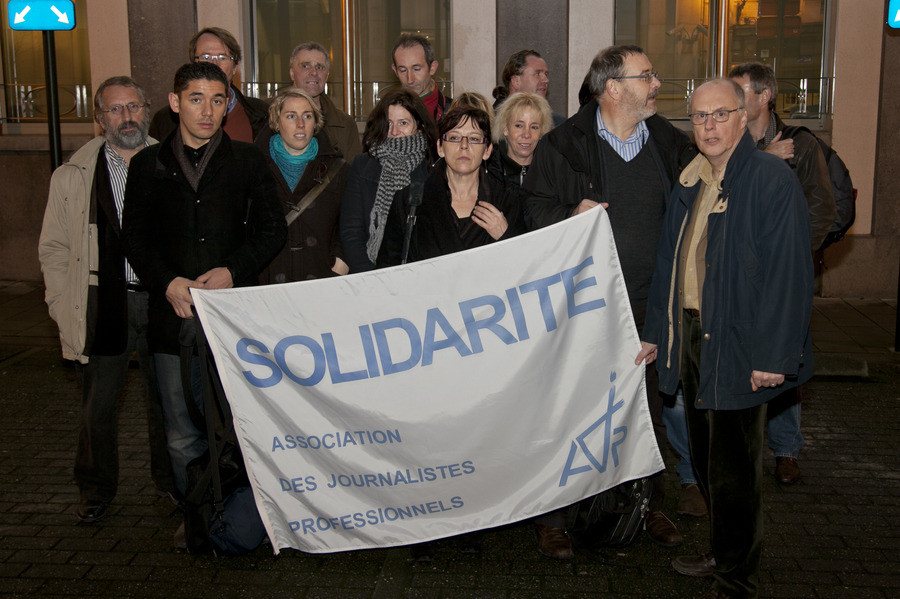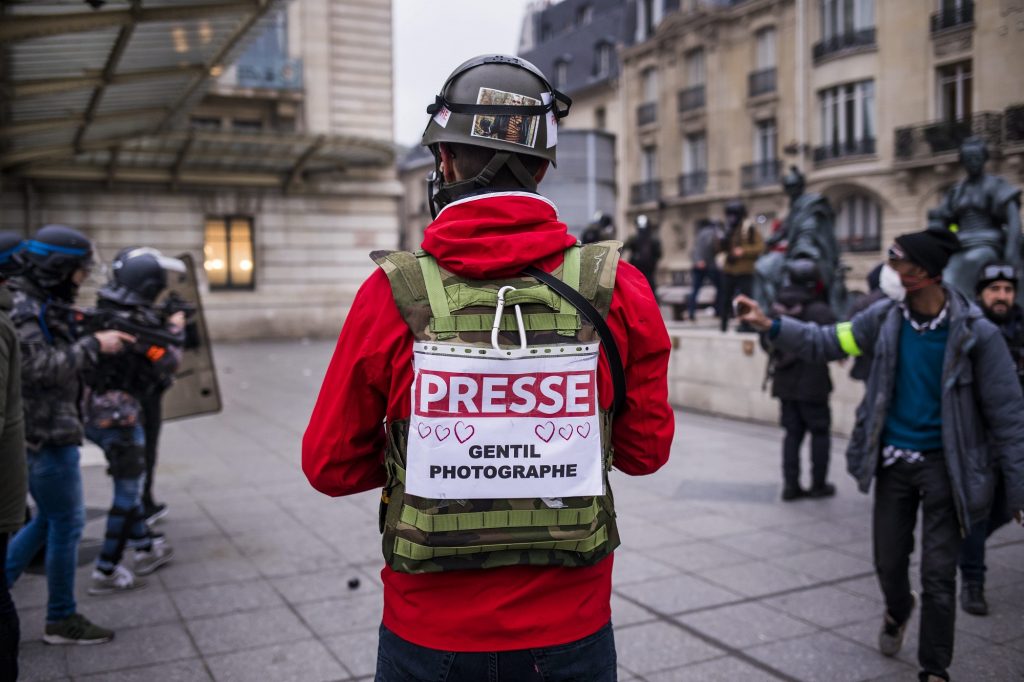On World Press Freedom Day, it has emerged that Belgium has plunged 12 places in the Reporters Without Borders (RSF) World Press Freedom Index. The country now only has the 23rd most free press in the world, down from the 11th in 2021.
According to the RSF, Belgian journalists enjoy a “relatively high degree of trust” but are often “subject to violence by police and protestors during demonstrations, as well as online threats directed, above all, at women.”
Belgium is now just behind new EU member state Latvia (22nd) and developing nations Namibia (18th) and Timor-Leste (17th), but enjoys greater press freedom than Western nations such as the United Kingdom (24th) and the United States (42nd).
The index used to calculate the RSF’s press freedom index has changed this year, so it is difficult to view exactly what has led to Belgium’s significantly decreased ranking.
RSF’s Belgium fact file does, however, suggest that the Covid-19 pandemic has led to a worsening press climate in the country.
The NGO highlights several areas of concern in the Belgian press, notably a lack of competition, the safety of journalists, a lack of comprehensive laws on press rights, dwindling advertising revenue, and growing distrust.
Lack of competition
The RSF notes that there is a general lack of competition between media in Belgium, notably due to the French-Flemish divide in the country. As a result, the Belgian media market is fragmented into two “quite separate, and small-scale, media markets.”
The two national broadcasters, RTBF and VRT, were found to be free from political bias due to the involvement of all major parties on their boards. Commercial media, however, is described as being used to push the influence of certain groups within the country.
“A small number of companies owned by a handful of prominent families with varied economic interests dominate the daily print press,” RSF notes.
Belgian businessmen such as Christian Van Thillo (DPG Media), Christian Leysen (Mediahuis), and Rik de Nolf (Roularta Media Group) and their families own most of the major Belgian newspapers and digital media outlets.
Like in many countries, several major media owners have political connections to parties and to other business interest groups, with concerns that large swathes of the national press are controlled by a few, select families.
Legal concerns
Belgium does not have a comprehensive law of press rights, the RSF asserts, but Belgian media does enjoy “solid legal and constitutional guarantees.”
Article 25 of the Belgian constitution states that “the press is free; censorship may never be established an no security may be demanded from writers, publishers, or printers...”

Credit: Belga
However, defamation laws still remain stringent within the country. Belgian journalists who are accused of having defamed public figures must stand trial, while the complainant is not required to appeal before a jury.
In 2019, the Belgium government included a clause in a memorandum allowing for judges to suppress or stop the dissemination of articles without prior justification, which sparked outrage among Belgian journalists.
Journalist safety
Echoing concerns raised by the RSF’s 2021 report, the safety of journalists still remains an issue in Belgium. “Journalists covering demonstrations against pandemic public-health measures were subjected to intimidation and threats by protesters,” the 2022 report notes.
During the unrest at last year’s Black Lives Matter and anti-lockdown protests, journalists often found themselves targets of police violence.
Photo-journalist Jérémy Audouard was manhandled, threatened, and detained despite showing press ID at a BLM protest in Brussels. Police violence, the RSF says, has become a real issue for the safety of journalists, and has even forced some to quit the profession, deeming it too dangerous.
Journalists are also often on the receiving end of online abuse. The covid pandemic in Belgium has led to a growing distrust of the press, especially in Flanders, where the media was criticised as having adopted a “pro-government” stance to health measure.
Reports of physical and verbal harassment of journalists skyrocketed at the start of the pandemic in 2020. Reports to the Council of Europe’s Safety of Journalists platform increased by 40% in 2019-2020, with a record number of complaints pertaining to physical attacks and harassment.
Worrying International Trends
Outside of Belgium, a general downwards trend in press freedoms has been observed. The RSF has described “informational chaos” in a globalised and deregulated digital news space, which has led to deepening polarisation between media outlets and even governments.
Related News
- Hundreds demonstrate in support of Julian Assange in Brussels
- Brussels Behind the Scenes: Opération Pegasus
Freedom of the press has been deeply undermined by growing global tensions and war. War propaganda has caused Russia to plummet by places 5 and Ukraine by 9. The press situation in Russia is now the 25th worst in the world.
The RSF also complains of a growing trend of the “Fox News-isation” of media, which it describes as a “danger for democracies, because it undermines the foundation of civil harmony and of a tolerant public debate.”
Other authoritarian nations have also cracked down on the free press. China has abused its constitutional powers in Hong Kong, banning much of the pro-democracy and independent media outlets. As a result, Hong Kong is now ranked the 32nd worst region for press freedoms, down a staggering 68 places from 2021.
You can read the full index composed by Reporters without Borders, here.

